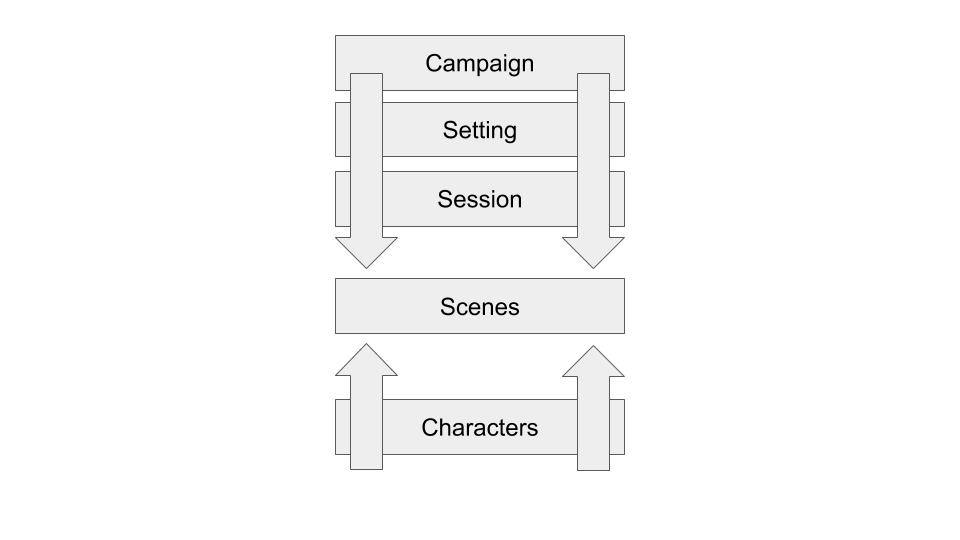I’m not the biggest fan of playing tabletop role-playing games online. I have played a few online games. I’ve run parts of a campaign that started face-to-face online. I am playing an online D&D game now which I enjoy. I will continue to do it in the future. I just find it hard to fully leverage the opportunity to the extent others have.
The question is why?
The intriguing puzzle
It was an intriguing puzzle as to why it wasn’t something I wanted to dive deeply into as it makes a lot of sense.
Flexible scheduling. Let’s face it, it means I can play without getting off my arse. I don’t have to drive 40-minutes each way. It’s the tabletop game version of working from home, but for your leisure activities. I can literally finish something I am doing and switch over to the game in like 5-minutes or put the washing in on the breaks that seem standard in these things. This tends to mean people are able to get games running at more varied times. Like crazy times, such as a Sunday morning (though to me that’s a good time!).
Wider playing pool. Is this going to turn into it is ‘just like working from home’? You can recruit from an almost infinite pool! The only restriction is timezones or how willing some people are to game at crazy hours. It means we can game with a wider group from the infinite online supply or create grand coalitions of the willing from people you know from conventions and online.
Makes some games viable. I’ve been told it makes some games I’d never run no matter what the method more viable as the virtual tabletop does a lot of the heavy lifting. It also makes some a bit more challenging, like Cortex Prime, they really should release a generic dice roller, because it does exist as I’ve seen them use it for their own streams.
In all ways this is brilliant and people have gone on to wrack up a ludicrous amount of play as a result. So what’s not to love? At first, it was just a general feeling of it being slightly less engaging. Since my first experiences were with the regular gaming group a lot of the elements were the same, just a bit less so. It’s also the case some of the advantages are also disadvantages, a bit like with online meetings you might actually be doing something else at the same time.
It wasn’t until I started to play with totally new people that I got it. I should have realised quite quickly since it was an interference with the very thing that I think makes a game successful.
You can lose the signal
Can’t stop the signal, Mal. Everything goes somewhere, and I go everywhere.
Mr Universe, Serenity
Apparently, unlike the quote from Serenity, you can lose the signal. What happens at the table is all about signals and online play dampens, dulls and makes those signals more challenging.
If you take the diagram of where the signals come from we can see why.

I don’t want to repeat the post this is taken from but it is clear to see some of the signals can transfer online without signal loss. It could even be said some of them may transfer better. This is the case with all those signals established in advance. The campaign and setting stuff established in session zero. Any clear signals placed on each protagonist’s character sheet. These can be communicated more strongly by being more directly accessible during actual play.
What gets dulled is anything that emerges from the session, the more subtle interplay of signals as play is actually happening. This can result in failed opportunities. The opportunities are a bit ‘let us do some role-playing now’ rather than being organic in play. The shape of the play is a bit more transactional and instructional in action rather than feeling like a dramatic interplay. It’s interesting to experience and varies by participant.
I understood that implied and subtle signals were driving play face-to-face with the regular group as I was responding to them, what wasn’t fully understood is how challenging certain elements of play are when these are harder to discern due to online play and when the player dynamic is new.
Once the dynamic changes you start to realise how many of those subtle signals we picked up on in our regular games drove forward other scenes. The whole issue of the player picking up on something another player has signalled and deciding, as an author, to create a scene with that character to pick up on that. These signals are subtle, not direct (as the character does not know) but are a valid part of the all players in the writing room approach to play.
That is much harder to do organically online, even when all the participants are the same and it’s fascinating to see how challenging it is when the various participants are different as a whole coded language no one specifically created or designed intentionally has been lost.
And, Finally…
There are probably solutions to mitigate this loss or dulling of the signal during actual play, but that will take a bit more thought, and be the subject of an article proper if I go there.
That might be something interesting to think about one day but, for now, it is possible to somewhat lose the signal Mal.
